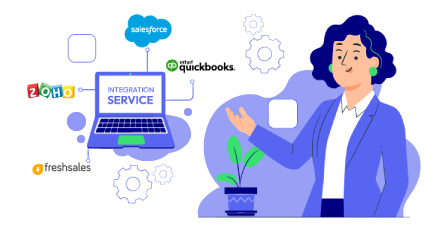10 Best eCommerce Returns Software for Cost-Efficient [2023]
Summer Nguyen | 12-18-2024
![10 Best eCommerce Returns Software for Cost-Efficient [2023]](https://cdn2.mageplaza.com/media/blog/ecommerce-returns-software/cover.png)
10 Best eCommerce returns software helps businesses navigate the complexities of returns management by showcasing cutting-edge software solutions that excel in automating processes, integrating seamlessly with existing eCommerce tools, providing lightning-fast service, and offering robust data analytics all aimed at enhancing customer satisfaction and optimizing operations.
What is eCommerce returns software?
eCommerce returns software, also known as returns management software, is a specialized software type crafted to facilitate and streamline the process of handling product returns for online retailers and eCommerce businesses. This software is crucial for businesses that sell products online, as it helps manage the return and exchange process efficiently and effectively, benefiting both the business and its customers.
Here are some functions and key features typically offered by eCommerce returns software:
Automation: eCommerce Returns software automates various aspects of the returns process, reducing manual work and the potential for errors. It can automate tasks such as return authorization, label generation, and return tracking.
Integration: It seamlessly integrates with other eCommerce tools and systems, including eCommerce platforms, inventory management systems, shipping solutions, and customer relationship management (CRM) software. This ensures that return data is consistent across the business’s operations.
Magento Integration Service
by Mageplaza
Connect Magento store with other apps instantly with experts' help
Learn moreReturn Authorization: The software typically includes a system for authorizing and processing returns. It allows customers to initiate returns, and businesses can deny or approve these requests based on their return policies.
Label Generation: eCommerce returns software often generates return shipping labels for customers, making it easy for them to return products. This feature can also help with tracking returned items.
Analytics and Reporting: It provides businesses with valuable data and analytics on return trends, reasons for returns, and customer behavior. This information can be used to make data-driven decisions and improve the overall customer experience.
Customer Communication: The software may offer tools for communication with customers regarding their return status, estimated processing times, and refund or replacement information.
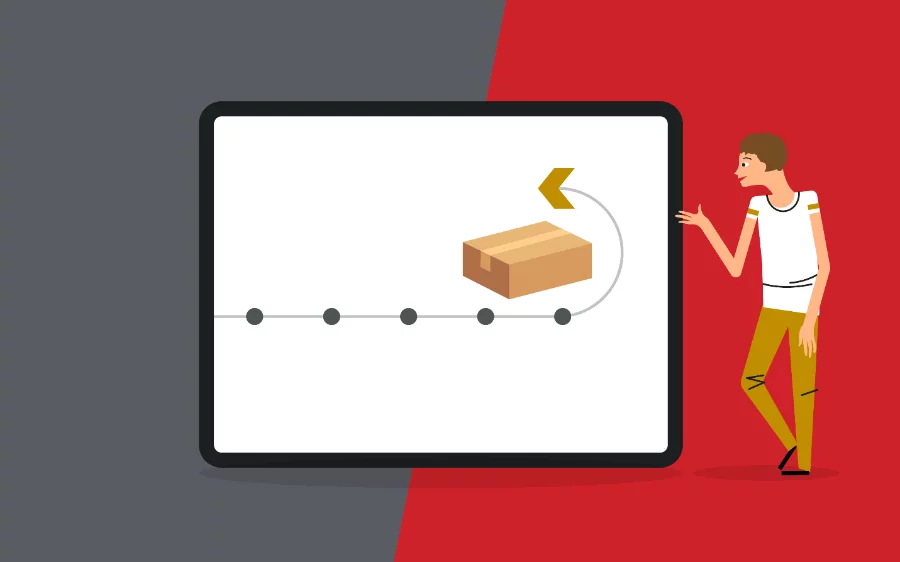
10 best tools for returns management
1. Ordoro
Ordoro provides a comprehensive suite of tools for returns management, empowering businesses to efficiently handle and streamline the process of product returns with ease and precision
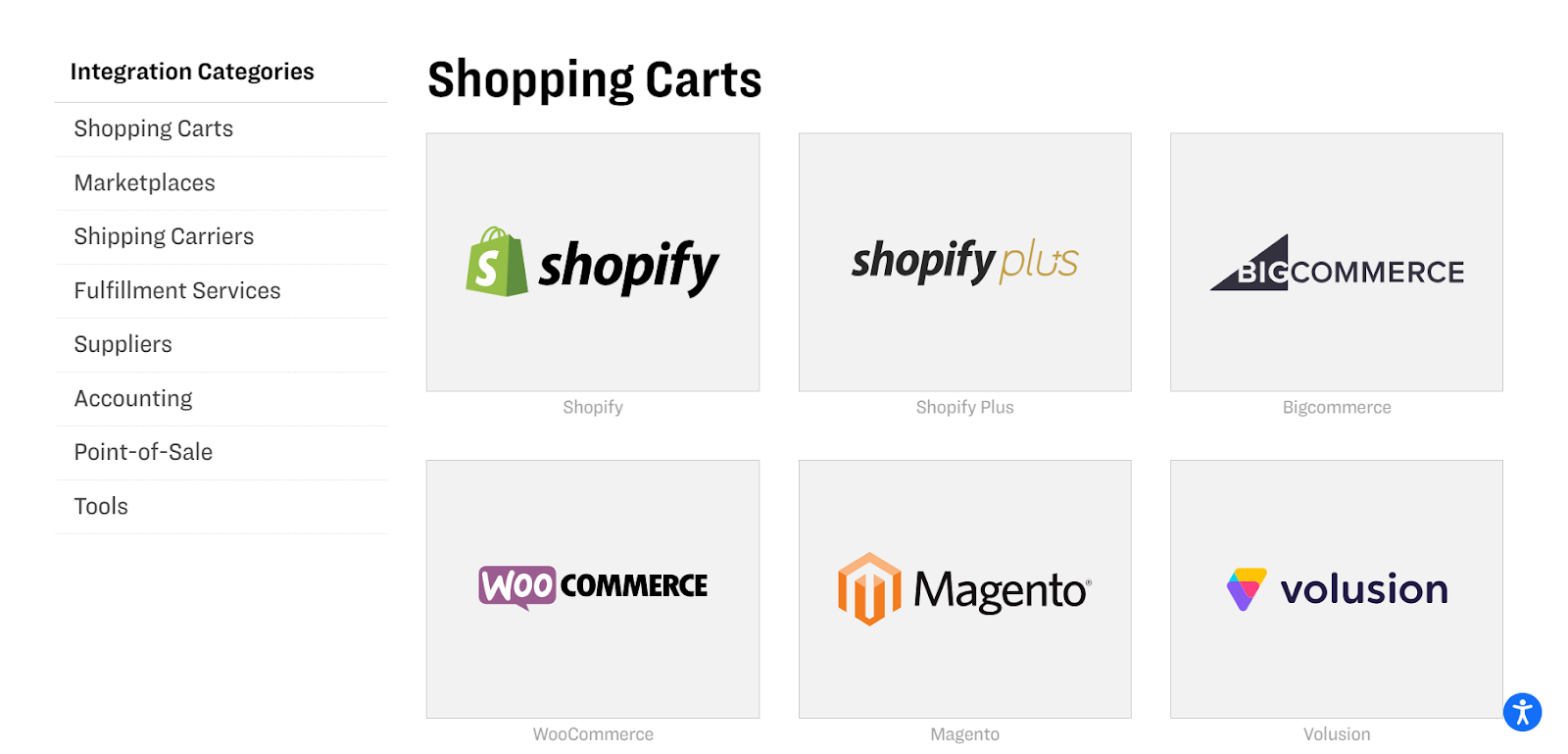
Pros of Ordoro
Automation: Ordoro excels at automating various aspects of the returns process, which can significantly reduce manual work and the potential for errors.
Integration: It offers seamless integration with a wide range of eCommerce platforms, shipping carriers, and integrates seamlessly with various third-party tools, rendering it a versatile option for businesses with diverse requirements.
Multi-Channel Support: Ordoro is well-suited for businesses that sell products on multiple sales channels, allowing for centralized order and returns management.
Inventory Management: It includes robust inventory management features, including low-stock alerts and real-time inventory tracking, which is essential for efficient returns processing.
Label Printing: Ordoro simplifies the generation of return shipping labels, making it convenient for both businesses and customers during the returns process.
Reporting and Analytics: The software provides valuable insights through reporting and analytics tools, enabling businesses to understand return trends and make data-driven decisions.
Cons of Ordoro
Pricing: Ordoro’s cost may not be suitable for very small businesses with limited budgets, as it offers a feature set that is more in line with mid-sized to larger enterprises.
Learning Curve: Some users may find Ordoro has a learning curve due to its extensive feature set. However, it can be managed with proper support and training.
Who Should Consider Using Ordoro
Mid-Sized to Large eCommerce Businesses: Due to its comprehensive feature set, automation capabilities, and integration options, Ordoro is most beneficial for businesses with a significant online sales presence.
Multi-Channel Retailers: If your business sells products on various eCommerce platforms and marketplaces, Ordoro’s multi-channel support can help streamline order and returns management.
Businesses with Complex Inventory Needs: Companies that manage complex inventories and require features like low-stock alerts and real-time inventory tracking can benefit from Ordoro’s capabilities.
2. Returnly
Returnly is an eCommerce returns software that focuses on enhancing the customer experience during the returns process. It provides a variety of features and capabilities designed to make returns easy, fast, and efficient for both customers and businesses.

Pros of Returnly
Positive Customer Experience: Returnly places a strong emphasis on providing a positive experience for customers during the returns process. This can enhance customer satisfaction and loyalty, which is essential in eCommerce.
Robust Integration: The software offers seamless integration with various eCommerce platforms and systems. This allows businesses to adopt Returnly without disrupting their existing operations, making it suitable for businesses with established eCommerce infrastructures.
Returnless Refunds: Returnly provides the option for “returnless refunds.” This means that customers can receive refunds without returning the product, streamlining the process and reducing return shipping costs.
Fast Processing: Returnly is designed to process returns quickly, ensuring that customers receive resolutions or refunds in a timely manner. Increased client retention and satisfaction may result from this.
Analytics: The software offers analytics and reporting features, allowing businesses to gain insights into return patterns, reasons for returns, and customer behavior, which can inform decision-making.
Cons of Returnly
Pricing: Returnly’s cost may not be suitable for all businesses, particularly smaller ones. It focuses on offering a premium customer experience, which comes with a price tag.
Specialized Focus: While Returnly excels in improving the returns process for customers, it may not be as comprehensive in handling other aspects of eCommerce operations, such as inventory management. Businesses seeking an all-in-one solution may need to supplement Returnly with additional software.
Who Should Consider Using Returnly
Established eCommerce Businesses: Returnly’s robust integration capabilities make it suitable for businesses with existing eCommerce infrastructures. It can be seamlessly integrated without disrupting operations.
Businesses Implementing Returnless Refunds: If your business wants to streamline the returns process by offering returnless refunds in certain scenarios, Returnly provides this option.
Businesses in Need of Analytics: Companies looking to gain insights into return patterns, reasons for returns, and customer behavior will benefit from Returnly’s analytics and reporting features.
3. LateShipment.com
LateShipment.com is an eCommerce returns software that primarily focuses on shipping and package tracking but can be beneficial in improving the returns process through its tracking and analytics capabilities.
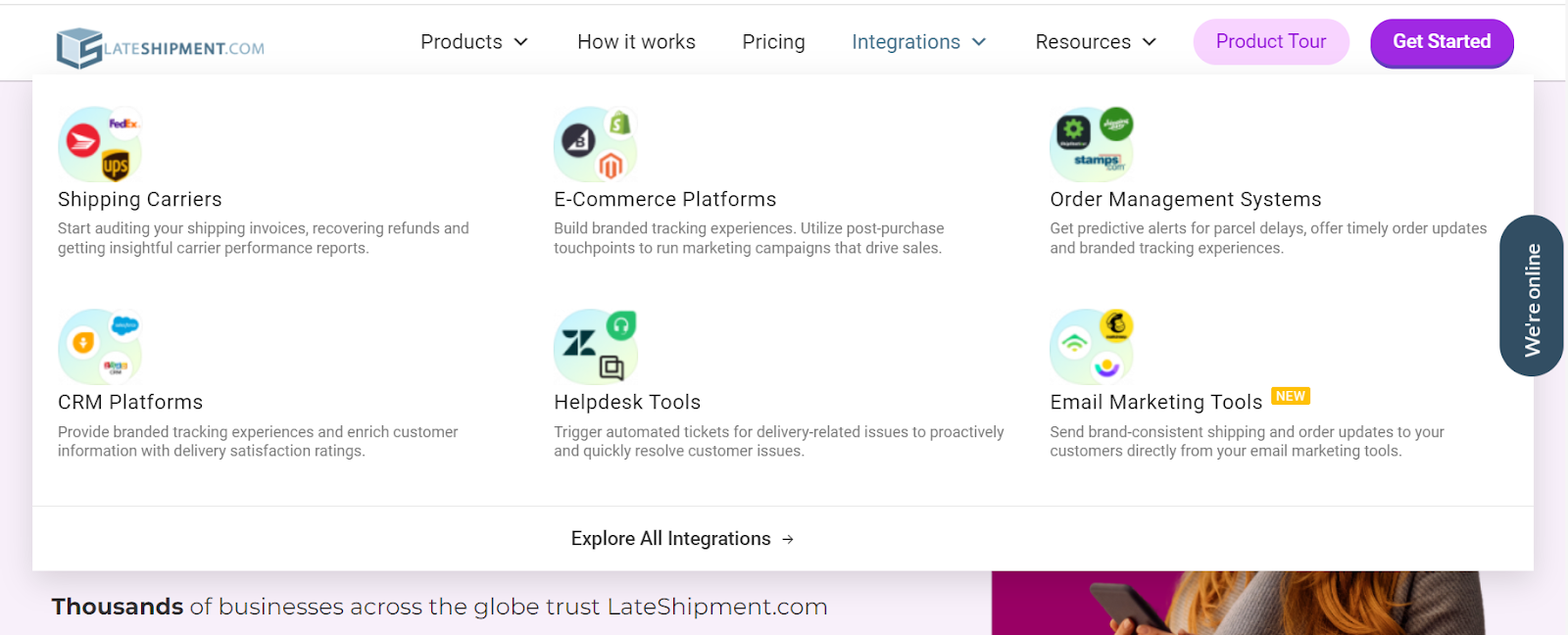
Pros of LateShipment.com
Real-Time Tracking: LateShipment.com provides real-time tracking of shipments, which can be useful for monitoring the status of returns and keeping customers informed.
Predictive Analytics: The software offers predictive analytics to help businesses anticipate delivery issues and take proactive steps to prevent or resolve them, reducing the likelihood of returns due to shipping problems.
Shipping Insights: It provides valuable insights into shipping performance, helping businesses optimize their shipping processes and potentially reduce the number of returns caused by shipping issues.
Integrated Communication: LateShipment.com can integrate with communication channels, allowing for automated and real-time customer notifications about the status of their shipments and returns.
Cons of LateShipment.com
Limited Returns Focus: LateShipment.com is primarily designed for shipping and package tracking, and its features related to returns management may not be as comprehensive as specialized returns software.
Not a Complete Returns Solution: While it can help improve the shipping and tracking aspects of returns, businesses looking for a holistic returns management solution may need to use LateShipment.com in conjunction with other software.
Who Should Consider Using LateShipment.com
Businesses Focused on Shipping Optimization: If your primary concern is improving your shipping processes, reducing shipping-related returns, and enhancing tracking, LateShipment.com can be beneficial.
Businesses in Need of Shipping Insights: Companies seeking insights into their shipping performance and potential areas for improvement can benefit from LateShipment.com’s analytics and reporting features.
Businesses with Shipping-Related Return Issues: If your return rate is high due to shipping problems, LateShipment.com’s predictive analytics and tracking capabilities can help reduce these issues.
4. AfterShip
AfterShip is an ideal choice for businesses that prioritize shipment tracking, customer communication, and transparency in their eCommerce operations.
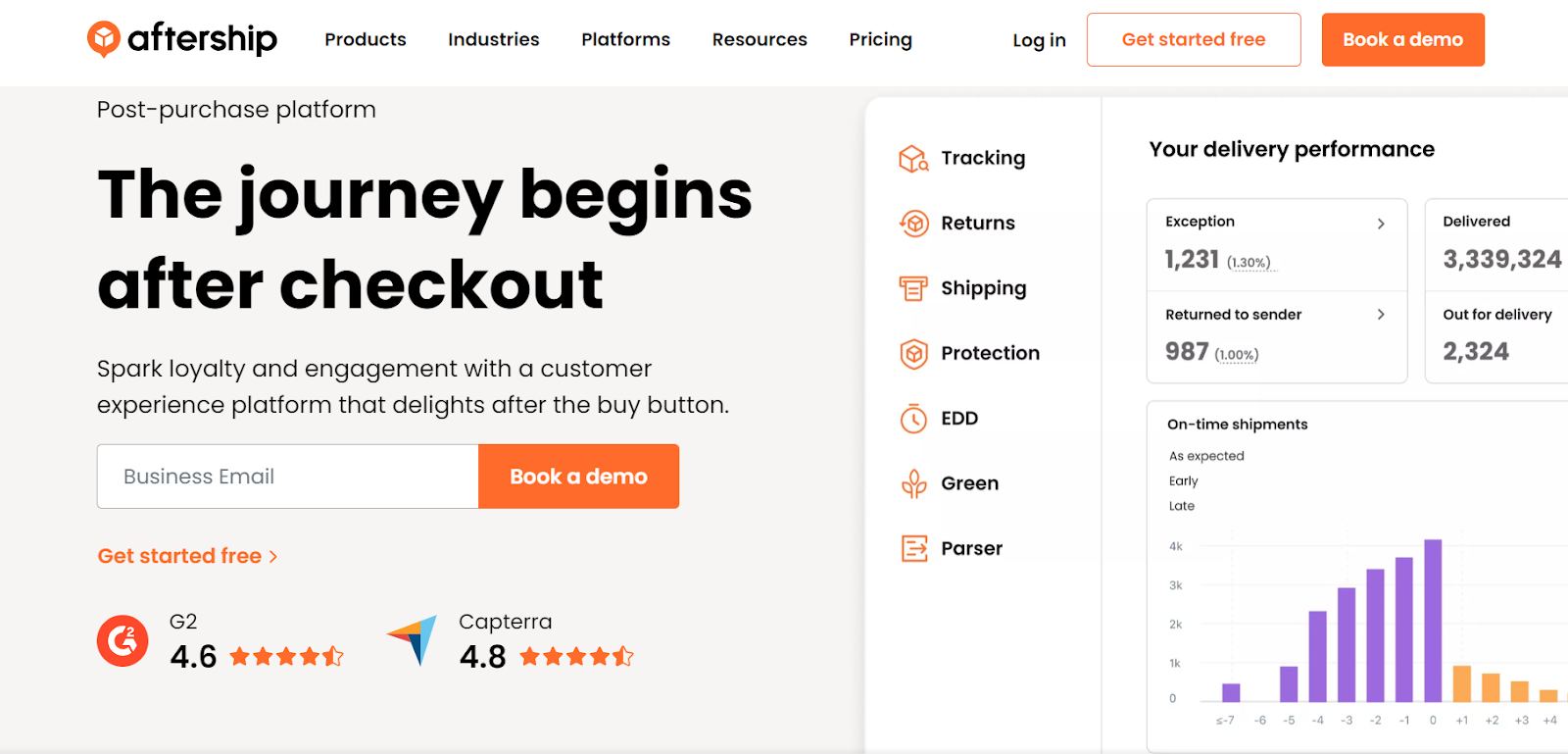
Pros of AfterShip
Shipment Tracking: AfterShip specializes in shipment tracking, providing real-time tracking information to customers and businesses, improving transparency.
Multi-Carrier Support: The software supports tracking shipments from numerous carriers, making it a versatile choice for businesses with diverse shipping needs.
Customer Communication: AfterShip helps keep customers informed about the status of their shipments, enhancing the overall customer experience.
Analytics and Insights: It offers reporting and analytics tools to help businesses understand shipping performance and reduce the number of returns due to shipping issues.
Cons of AfterShip
Limited Focus on Returns Management: While AfterShip is strong in tracking shipments and enhancing the customer experience, it may not provide the comprehensive returns management features that some businesses require.
Not a Dedicated Returns Solution: AfterShip is primarily designed for tracking shipments and may need to be supplemented with additional returns management software for handling returns more comprehensively.
Who Should Consider Using AfterShip
eCommerce Businesses Focused on Shipment Tracking: If your primary concern is tracking shipments and providing real-time tracking information to customers, AfterShip is a valuable tool.
Businesses Committed to Transparency and Customer Communication: AfterShip helps keep customers informed about the status of their shipments, enhancing the overall customer experience.
Businesses Seeking Shipping Insights: If you want to gain insights into your shipping performance to optimize shipping processes and reduce returns due to shipping issues, AfterShip offers analytics and reporting features.
5. Narvar
Narvar is an eCommerce customer experience and post-purchase platform that specializes in providing a seamless and personalized experience for customers after they make a purchase. While it is not solely a returns management software, Narvar offers features that can enhance the returns and post-purchase process for eCommerce businesses.
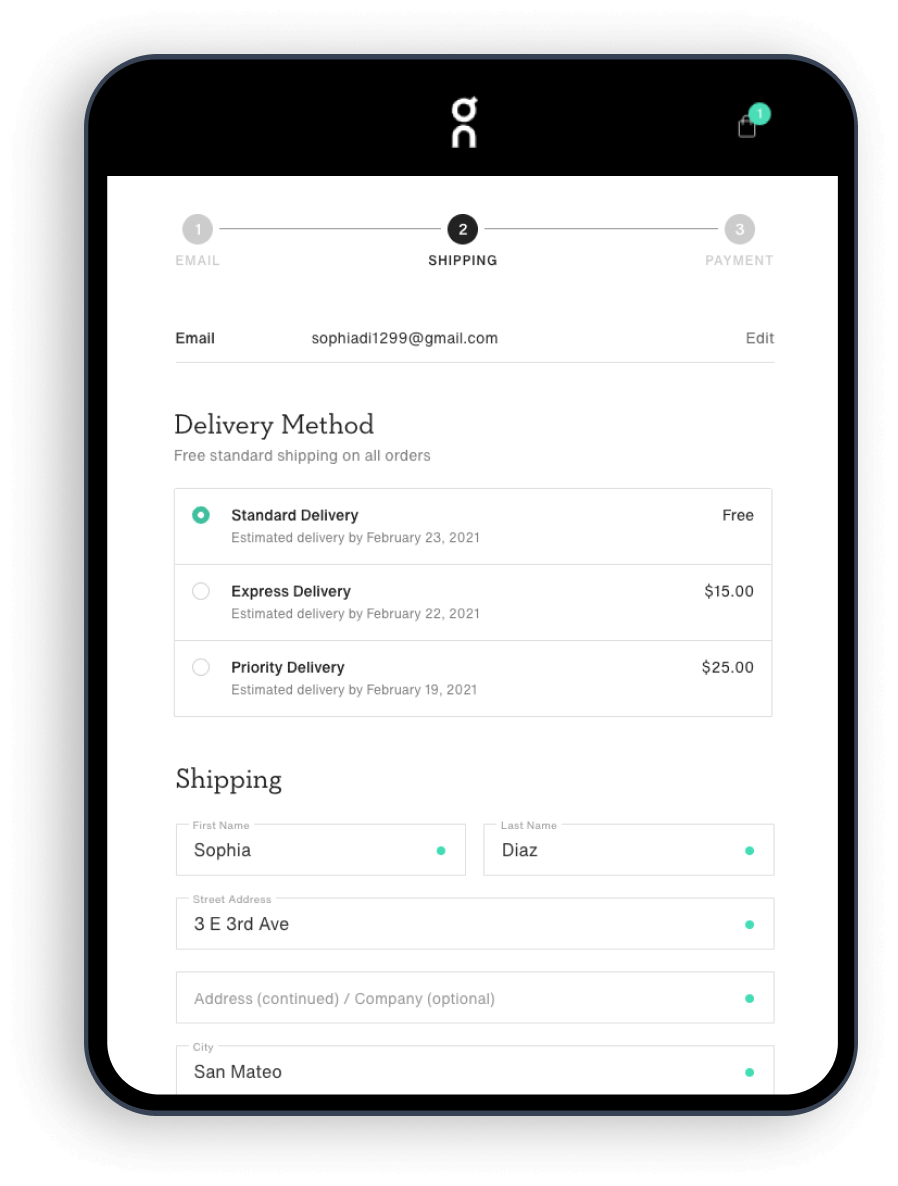
Pros of Narvar
Personalized Customer Experience: Narvar focuses on creating personalized post-purchase experiences for customers, which can lead to increased customer satisfaction and loyalty.
Tracking and Communication: The platform provides order tracking, shipment updates, and communication with customers throughout the post-purchase journey, including returns.
Analytics and Insights: Narvar offers analytics and reporting tools to aid businesses in comprehending customer behavior and preferences, which can be valuable for optimizing the returns process.
Multi-Carrier Support: The software can handle tracking and communication for multiple shipping carriers, offering versatility for businesses with diverse shipping needs.
Cons of Narvar
Not a Dedicated Returns Solution: While Narvar is excellent at enhancing the post-purchase experience, it may need to be supplemented with specialized returns management software for a more comprehensive returns process.
Cost: The pricing of Narvar may not be suitable for all business sizes, particularly smaller businesses with limited budgets.
Who Should Consider Using Narvar
eCommerce Businesses Focused on Customer Experience: If providing a personalized and exceptional post-purchase experience is a top priority for your eCommerce business, Narvar is a valuable tool.
Businesses Committed to Transparency and Customer Communication: Narvar excels in tracking shipments and keeping customers informed, making it a good fit for businesses that prioritize communication and transparency.
Businesses Seeking Customer Insights: If you want to get insights into customer behavior to optimize your post-purchase and returns processes, Narvar’s analytics and reporting features are beneficial.
Businesses with Diverse Shipping Needs: Narvar can handle multiple shipping carriers, making it versatile for businesses with various shipping partners.
6. OrderHive
OrderHive is an eCommerce order and inventory management software. It plays a significant role in eCommerce operations, including managing returns indirectly
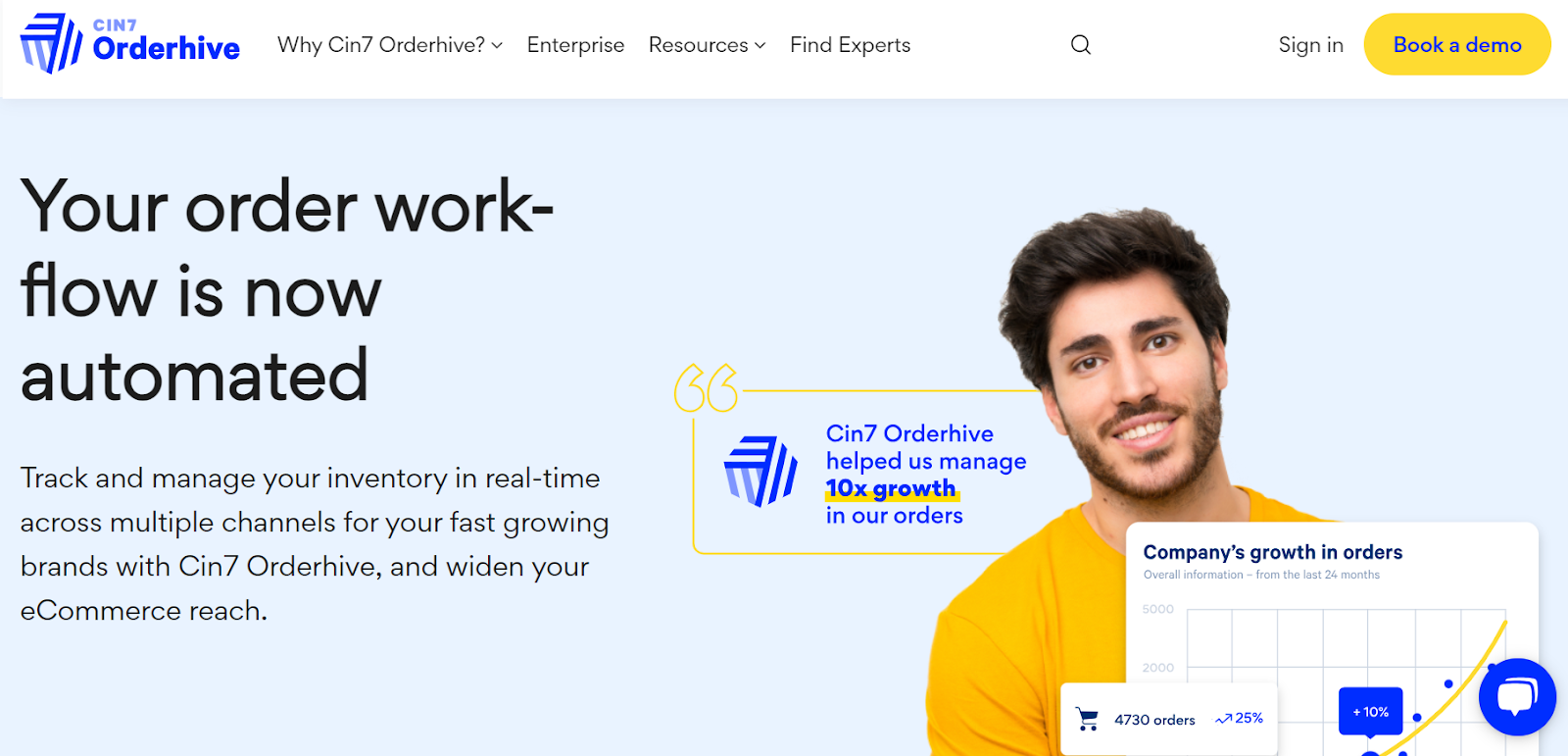
Pros of OrderHive
Inventory and Order Management: OrderHive excels in managing inventory and order fulfillment. It helps businesses efficiently process and track orders and maintain accurate inventory levels. Returns Automation: Although not a dedicated returns management tool, OrderHive can automate certain aspects of the returns process, making it easier to handle returns efficiently. Integration: The software offers integration with various eCommerce platforms, shipping carriers, and third-party applications, providing a seamless experience for businesses.
Read more: 10 eCommerce Integration Software Boosting Online Store
Cons of OrderHive
Not a Specialized eCommerce Returns Solution: OrderHive is not primarily designed for returns management, so its returns features may not be as comprehensive as those of specialized returns management software.
Not Ideal for All Business Sizes: It may be better suited for businesses with a moderate to large volume of orders and inventory. Smaller businesses may find it more complex than needed.
Who Should Consider Using OrderHive
eCommerce Businesses with Complex Inventory Needs: Companies that manage complex inventories and need robust order and inventory management features will find value in OrderHive.
Multi-Channel Retailers: If your business sells products on multiple eCommerce platforms and marketplaces, OrderHive can help consolidate order and inventory management across channels.
Businesses Integrating with Other eCommerce Tools: OrderHive’s integration capabilities make it a robust selection for businesses already using various eCommerce tools and systems.
7. 12Return
12Return is an excellent choice for businesses that require a comprehensive returns management solution, have a significant online presence, and are willing to invest in enhancing their returns processes.
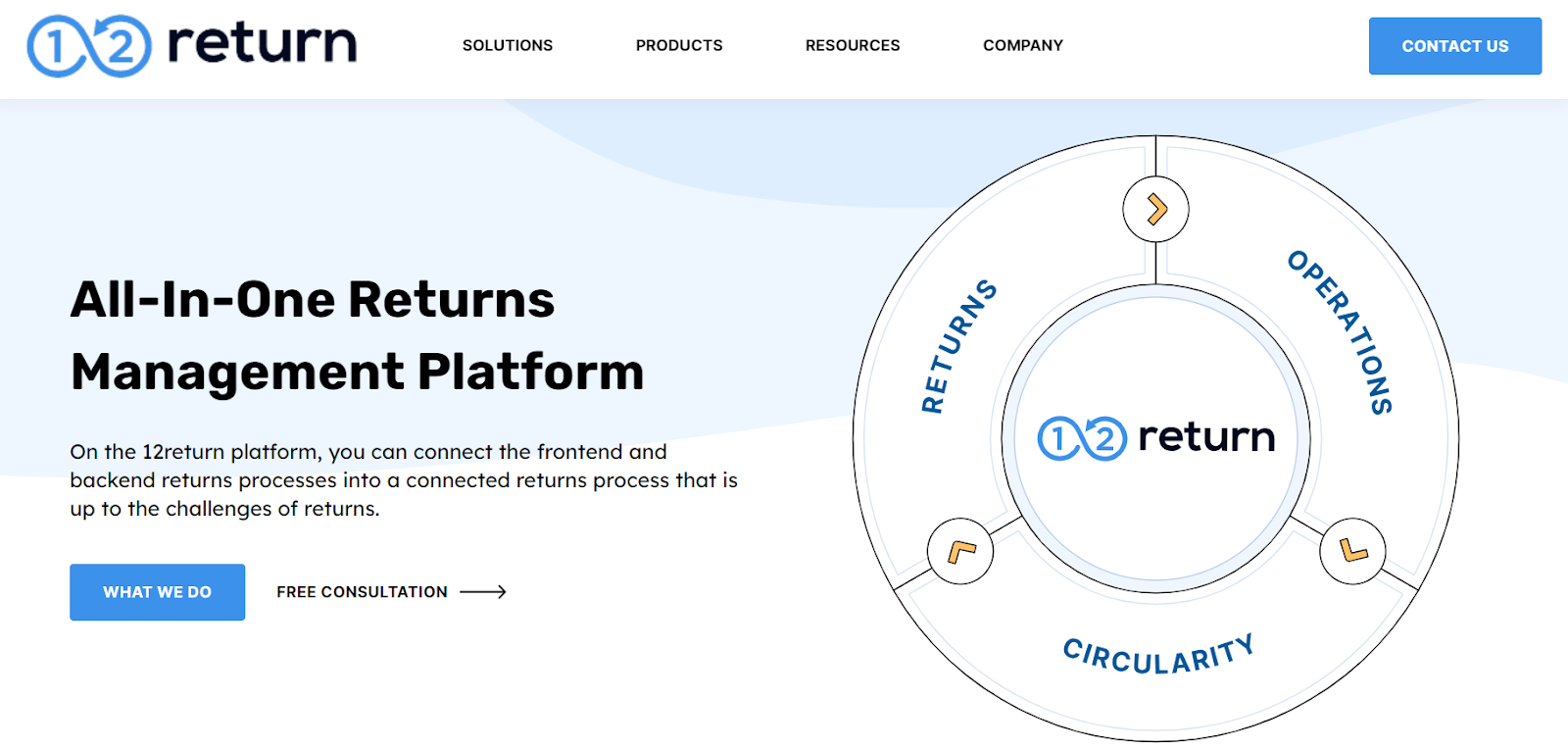
Pros of 12Return
Comprehensive Returns Management: 12Return is designed to provide end-to-end returns management solutions, covering various aspects of the returns process, including returns portal, returns authorization, and analytics.
Customization: This software provides a high degree of customization, allowing businesses to adapt it to their specific needs and workflows.
Integration: 12Return can be integrated with eCommerce platforms and other third-party applications, providing a well-connected ecosystem for businesses.
Cons of 12Return
May Be More Suitable for Larger Businesses: 12Return’s feature set and customization options may be more appealing to mid-sized to large enterprises, potentially making it less cost-effective for very small businesses.
Complexity: Due to its comprehensive nature, 12Return may have a steeper learning curve for users and administrators.
Who Should Consider Using 12Return
Mid-Sized to Large eCommerce Businesses: Due to its comprehensive returns management capabilities and customization options, 12Return is best suited for businesses with a significant online presence.
Businesses Focused on Data-Driven Decisions: 12Return provides extensive return analytics, making it a good choice for companies looking to gain insights into return patterns and reasons for returns.
Businesses Willing to Invest: 12Return offers a comprehensive solution but comes at a cost. Businesses should be prepared to invest in returns management to fully utilize its features.
8. ReverseLogix
ReveseLogix is an excellent choice for businesses that require a comprehensive returns management solution, have a significant online presence, and are willing to invest in enhancing their returns processes.
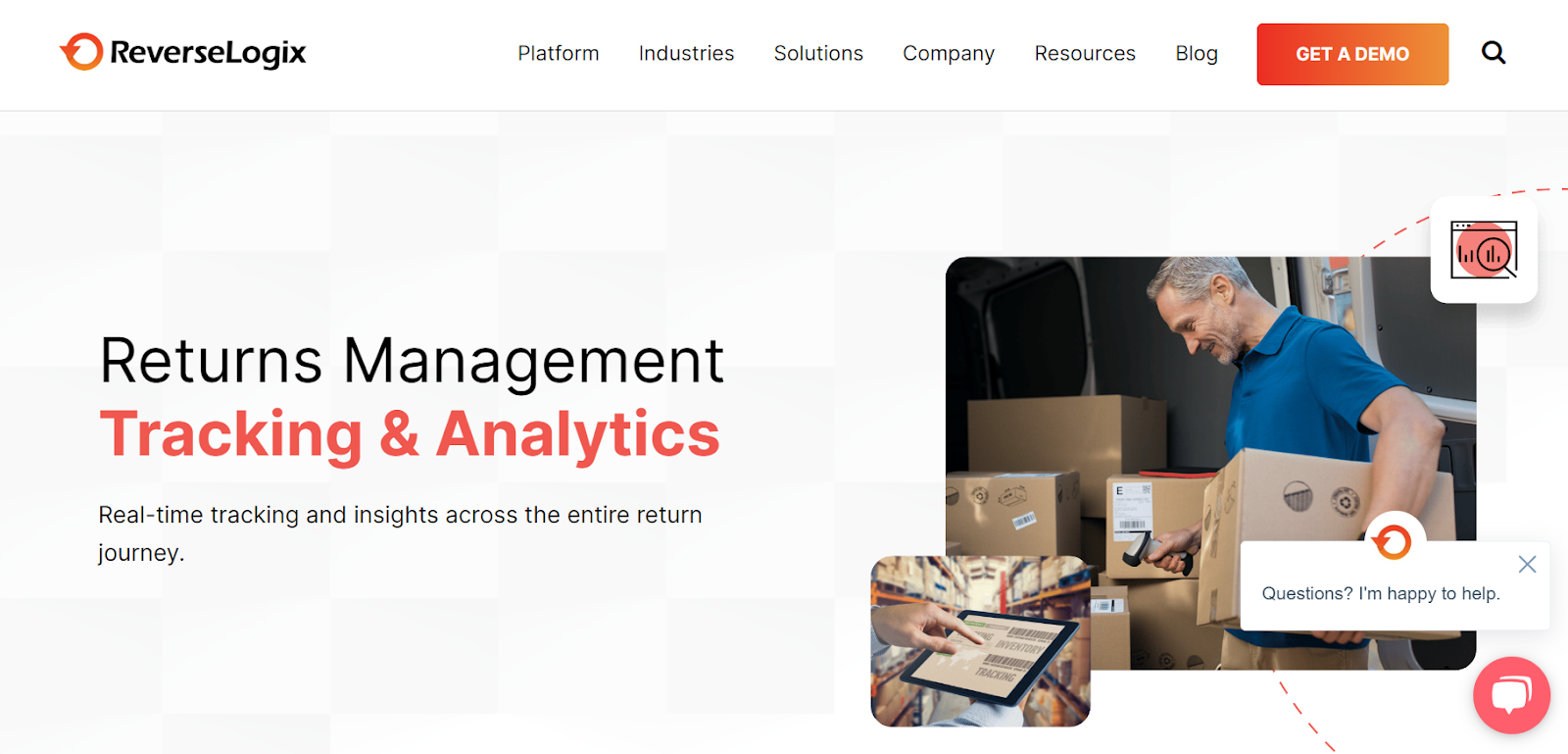
Pros of ReverseLogix
End-to-End Returns Management: ReverseLogix offers a comprehensive returns management solution that covers various aspects of the returns process, from returns initiation to final disposition.
Integration: The software can be integrated with eCommerce platforms, shipping carriers, and other third-party applications, facilitating a well-connected returns ecosystem for businesses.
Custom Workflows: ReverseLogix provides customization options, allowing businesses to tailor the software to their specific returns processes and requirements.
Read more: What is a Workflow? Types, Examples & Guide
Cons of ReverseLogix
Cost-Effective for Larger Businesses: ReverseLogix’s feature set and customization options may make it more suitable for mid-sized to large businesses, potentially making it less cost-effective for very small businesses.
Learning Curve: Given its comprehensive nature, ReverseLogix may have a steeper learning curve, and users may require training to use it effectively.
Who Should Consider Using ReverseLogix
Mid-Sized to Large eCommerce Businesses: ReverseLogix’s comprehensive returns management capabilities and customization options make it best suited for businesses with a significant online presence.
Businesses with Complex Returns Processes: If your business handles a wide range of products with various return scenarios, ReverseLogix’s customization can be advantageous.
Businesses Seeking Data-Driven Insights: ReverseLogix offers in-depth return analytics, making it a good choice for companies looking to gain insights into return patterns and reasons for returns.
9. Return Rabbit
Return Rabbit is an option for businesses that need a returns management solution that offers integration capabilities and focuses on effective customer communication.
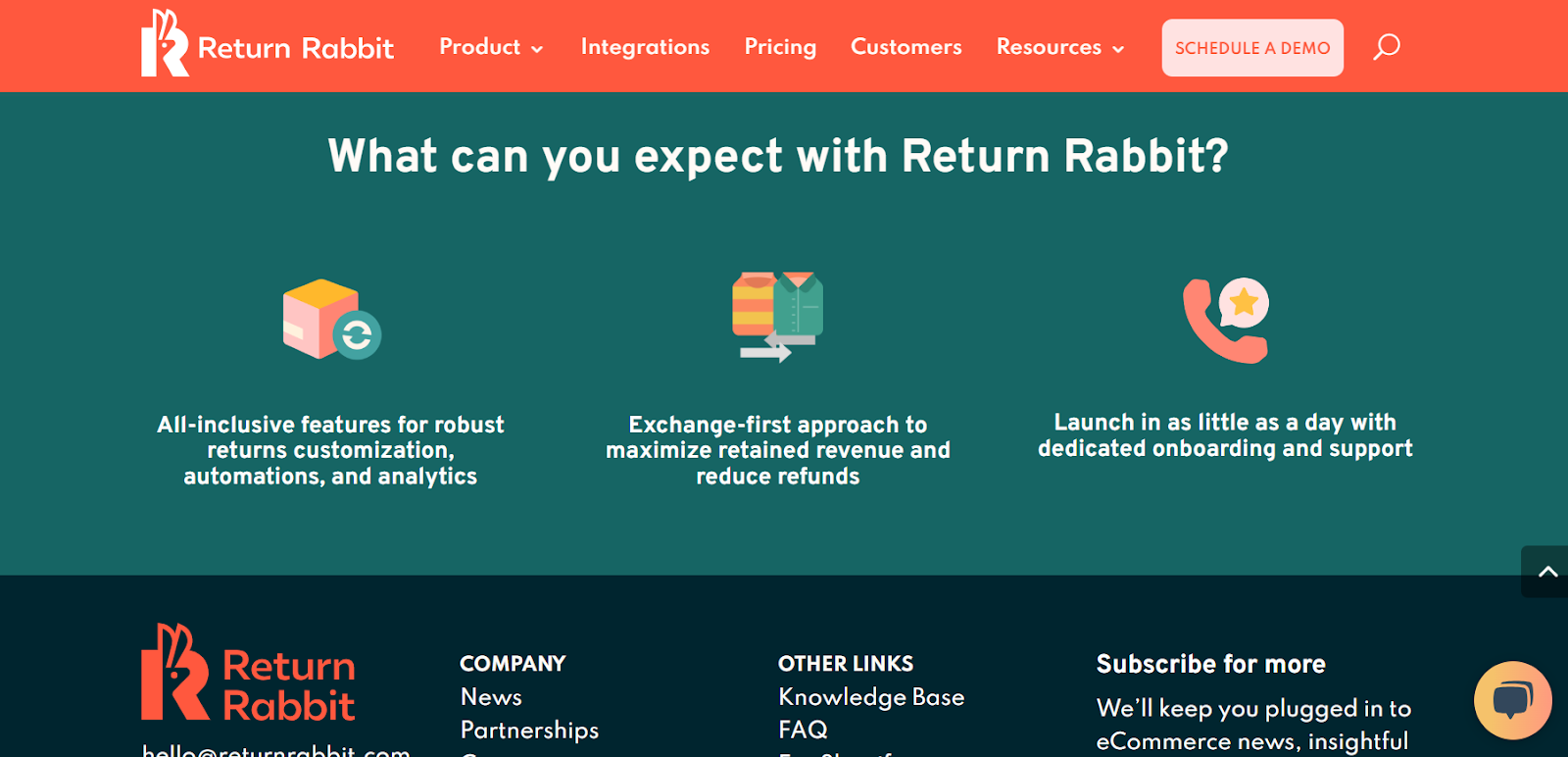
Pros of Return Rabbit
Integration: Return Rabbit can integrate with various eCommerce platforms, create a convenient choice for businesses with existing systems and workflows.
Customer Communication: The software includes features for communicating with customers about the status of their returns, which can improve the overall returns experience. Reporting and Analytics: Return Rabbit offers analytics and reporting features, helping businesses get insights into their returns operations.

Implement deeper analysis - Make better decisions with effective advanced statistic reports
Check it out!Cons of Return Rabbit
Limited Information Available: There may be limited publicly available information about Return Rabbit, which can make it challenging to assess its features and suitability.
May Not Be a Comprehensive Returns Solution: The extent of its returns management capabilities may not be as comprehensive as specialized returns management software.
Who Should Consider Using Return Rabbit
Businesses Seeking Integration: If your business is looking for a returns management solution that can integrate with existing eCommerce platforms and tools, Return Rabbit may be a good choice.
Businesses Focused on Customer Communication: Companies that prioritize clear and effective communication with customers during the returns process can benefit from Return Rabbit’s features.
Businesses Needing Basic Reporting and Analytics: Return Rabbit offers analytics and reporting tools that can help businesses gain insights into their returns operations.
Smaller Businesses: While it may not be as comprehensive as some other solutions, Return Rabbit may be cost-effective and suitable for smaller businesses with less complex returns management needs.
10. Loop Returns
Loop Returns is an excellent choice for businesses that prioritize automation, analytics, and have established eCommerce operations. It’s well-suited for improving the efficiency of the returns process and gaining insights into return patterns and customer behavior.
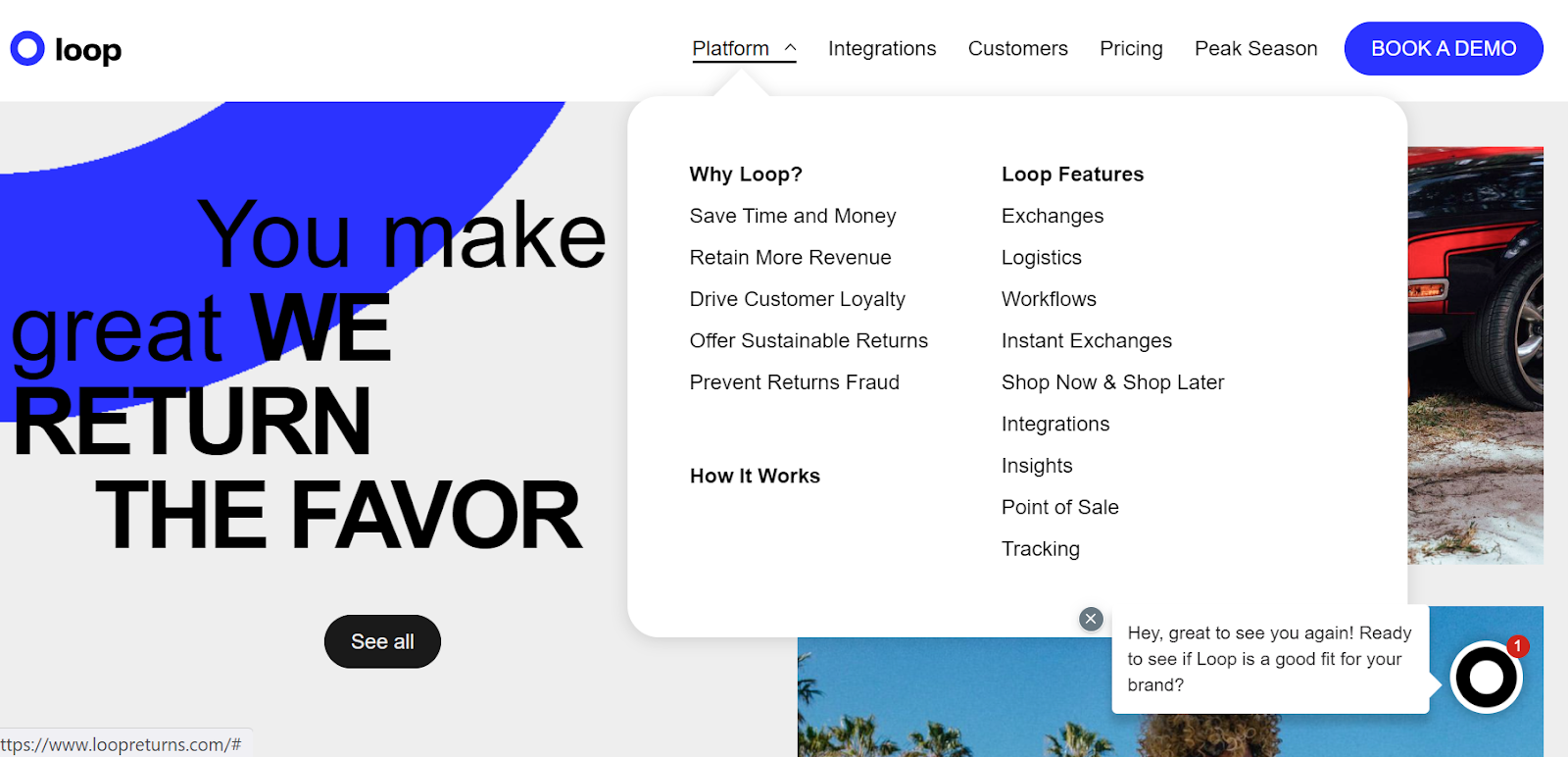
Pros of Loop Returns
Returns Automation: Loop Returns provides automation features that streamline and simplify the returns process, saving time and reducing manual work.
Analytics and Reporting: The software offers robust reporting and analytics tools, allowing businesses to gain insights into return patterns and customer behavior.
Integration: Loop Returns integrates with various eCommerce platforms and tools, ensuring a well-connected returns ecosystem for businesses.
Cons of Loop Returns
Pricing: The cost of Loop Returns may not be suitable for very small businesses with limited budgets, as it offers a feature-rich solution that caters to more extensive operations.
May Not Be Ideal for All Business Sizes: While it’s suitable for a range of businesses, some smaller enterprises might find it more feature-rich than necessary.
Who Should Consider Using Loop Returns
Businesses Prioritizing Automation: If you want to streamline and automate your returns process to improve efficiency, Loop Returns is an excellent choice.
Businesses in Need of Analytics: Companies looking to gain insights into return patterns, reasons for returns, and customer behavior will benefit from Loop Returns’ analytics and reporting features.
Established eCommerce Businesses: Loop Returns is well-suited for businesses with a significant online presence and established eCommerce operations.
Businesses Willing to Invest: The software provides a comprehensive solution, but it comes at a cost. Businesses should be prepared to invest in returns management to fully utilize its features.
Conclusion
In your search for the right returns management software, you can explore a variety of options, including specialized returns management tools and broader post-purchase and customer experience platforms. Through a thorough evaluation of your individual requirements and a comprehensive comparison of the pros and cons of different solutions, you can make a well-informed choice that enhances your returns management processes and overall eCommerce operations.

